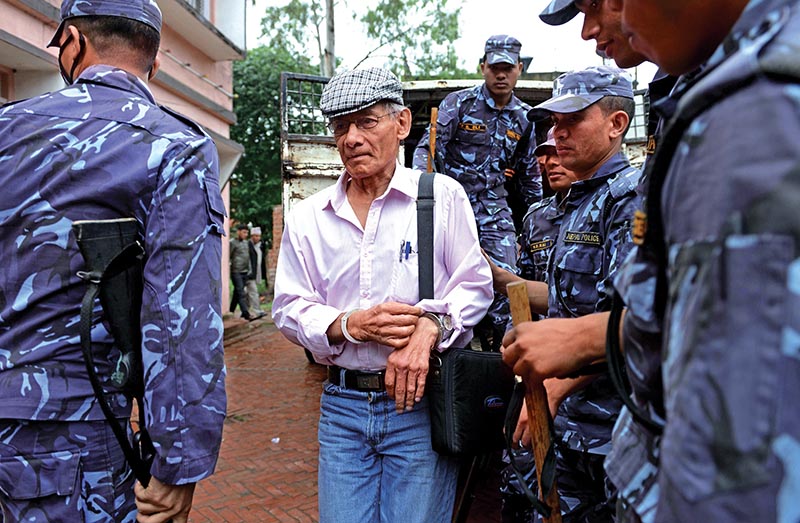Order likely to pressure govt to decide on Sobhraj
Kathmandu, April 1
The Supreme Court’s directive on waiver of jail sentence of elderly prisoners is likely to put pressure on the government to take a call on murder convict Charles Sobhraj who is serving jail sentence in Nepal.
On 24 February 2019, the SC had issued a writ of mandamus to the government, asking it to take a decision within three months on whether Sobhraj qualified for waiver of his remaining jail sentence.
The Frenchman, who earned the nickname ‘bikini killer’ for allegedly committing serial murders throughout Asia in the 1970s, was convicted in Nepal in two murder cases and has been in jail here since 2003. In 2014, Sobhraj was sentenced to 20 years in jail for the murder of Canadian tourist Laurent Carrierethe in 1975 in Kathmandu. In 2004, he was sentenced to life in Nepal for murdering American tourist Connie Jo Bronzich. Sobhraj, 75, underwent open-heart surgery last year.
Spokesperson at the Office of the Attorney General, Sanjeeb Raj Regmi, said the provision related to waiver of jail term of elderly prisoners in the Senior Citizens Act mentions the word ‘may’ which means that the government may or may not waive the sentence of some elderly prisoners depending on whether the person in question is a threat to society.
“Waiver is a favour, not a right,” he said, adding that the government might reject an elderly prisoner’s plea for waiver of the remaining sentence if the crime he/she committed fits the definition of heinous crime.
Former Attorney General Raman Kumar Shrestha said that as per Section 37 of the Criminal Offence (Punishment Determination and Execution) Act, a person who is facing life term or has been convicted of rape, corruption, human trafficking, abduction and hostage taking, drug offences, organised crime, money laundering, torture, inhuman and degrading treatment and crimes against humanity would not qualify for waiver.
He said a person convicted of murder could also qualify for waiver provided that he/she has not been imposed a life term for the crime of murder.






